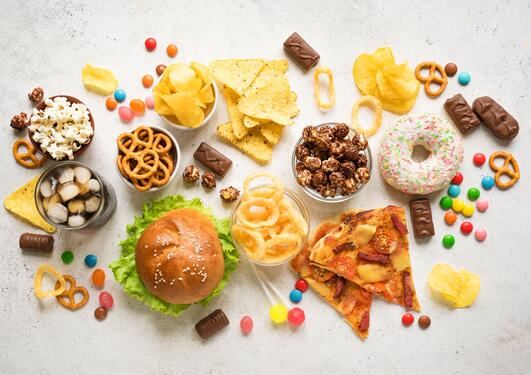Maternal soft drink consumption linked to ADHD symptoms in children
A Norwegian study shows that maternal daily intake of sweetened carbonated beverages during pregnancy can be associated with offspring ADHD symptoms

Hovedinnhold
Purpose
Intrauterine exposures influence offspring health and development. Here we investigated maternal intake of sweetened carbonated beverages (SCB) during pregnancy and its association with ADHD symptoms in the offspring.
Methods
This study was based on the Norwegian Mother, Father and Child Cohort Study (MoBa) and the Medical Birth Registry of Norway. Maternal diet mid-pregnancy was assessed using a food frequency questionnaire (FFQ). All mothers who responded to the FFQ and a questionnaire when their child was 8 years of age were included (n = 39,870). The exposure was defined as maternal intake (daily servings) of SCB, using no daily intake as reference. Outcome was offspring ADHD symptoms, evaluated as a continuous standardized ADHD score and as a binary outcome of six or more ADHD symptoms vs. five symptoms or less. Associations were analysed using log-binomial regression and linear mixed regression models with adjustment for covariates.
Results
The adjusted regression coefficients for the standardized ADHD offspring symptom score were 0.31 [95% confidence intervals (0.001, 0.62)] and 0.46 (0.15, 0.77) for maternal daily intake of ≥ 1 glasses of SCB, when the models included adjustments for total energy intake or energy intake from other sources than SCBs and sweet drinks, respectively. The corresponding adjusted relative risks were 1.16 (1.004, 1.34) and 1.21. (1.05, 1.39) for drinking ≥ 1 glasses daily.
Conclusion
In a large pregnancy cohort with offspring followed until 8 years of age, we found an association between maternal daily intake of SCB and offspring ADHD symptoms. These results suggest a weak positive relationship between prenatal exposure to SCB and offspring ADHD.
This was also news in VG.no (in Norwegian): Barn av brusdrikkende mødre har flede adhd symptomer
